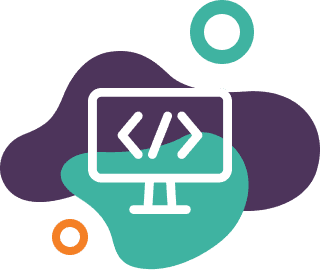Debugging

What is Debugging?
Debugging is the process of identifying, analyzing, and correcting errors in software code to ensure the application runs as intended. This fundamental phase of software development addresses “bugs” — problems that prevent code from functioning properly, producing inaccurate results or causing crashes. While often seen as purely corrective, debugging is also about refining code to prevent future issues and improve efficiency, making it central to software quality assurance.
Types of Bugs
Software bugs come in various forms, each presenting unique challenges. The most common include:
Syntax Errors
These errors arise when code violates the rules of the programming language, causing compilers or interpreters to be unable to process the code correctly.
Logic Errors
Although syntax is correct, logic errors cause incorrect output, often due to flaws in the algorithm or miscalculations.
Runtime Errors
These occur while the program runs, usually because of issues like memory overload, undefined variables, or incompatible data types, causing the program to stop unexpectedly.
Semantic Errors
Unlike logic errors, semantic errors don’t necessarily prevent the program from running but lead to unintended or incorrect outcomes due to coding mistakes.
Key Debugging Techniques
Effective debugging involves several strategies, each aimed at isolating and addressing issues within the code. Here are a few:
Code Reviews
An extra set of eyes on the code often uncovers potential problems early on. Collaborating with peers to review code can highlight areas for improvement, correct minor mistakes, and increase code quality.
Breakpoints and Step Execution
Debugging tools allow developers to pause code execution at specific points, enabling them to examine variables and functions step-by-step. This approach reveals how the code behaves at various stages and helps pinpoint where things go wrong.
Error Logging
Maintaining logs of system errors and program flow is essential for tracking unusual behavior or recurring issues. Logs provide insights into system behavior and help developers identify issues over time.
Automated Debugging Tools
Advanced debugging tools (e.g., GDB for C/C++ or Visual Studio Debugger for .NET) assist in quickly identifying issues, offering features like code tracing, variable inspection, and breakpoints. Many modern tools also use AI to detect patterns, suggesting potential fixes.
Benefits of Debugging
Debugging is not just about problem-solving; it directly impacts software reliability and user satisfaction. By thoroughly testing and correcting code, developers improve performance, enhance security, and ensure a smoother user experience. Additionally, debugging provides a deeper understanding of code behavior, enabling more efficient future development.
The Future of Debugging
With the increasing complexity of software, debugging is evolving, with AI and machine learning playing larger roles. Automated debugging, code analysis tools, and predictive algorithms are advancing, helping developers anticipate and prevent issues before they arise. The role of debugging will continue to expand as applications grow in complexity, underscoring its importance in modern software development.